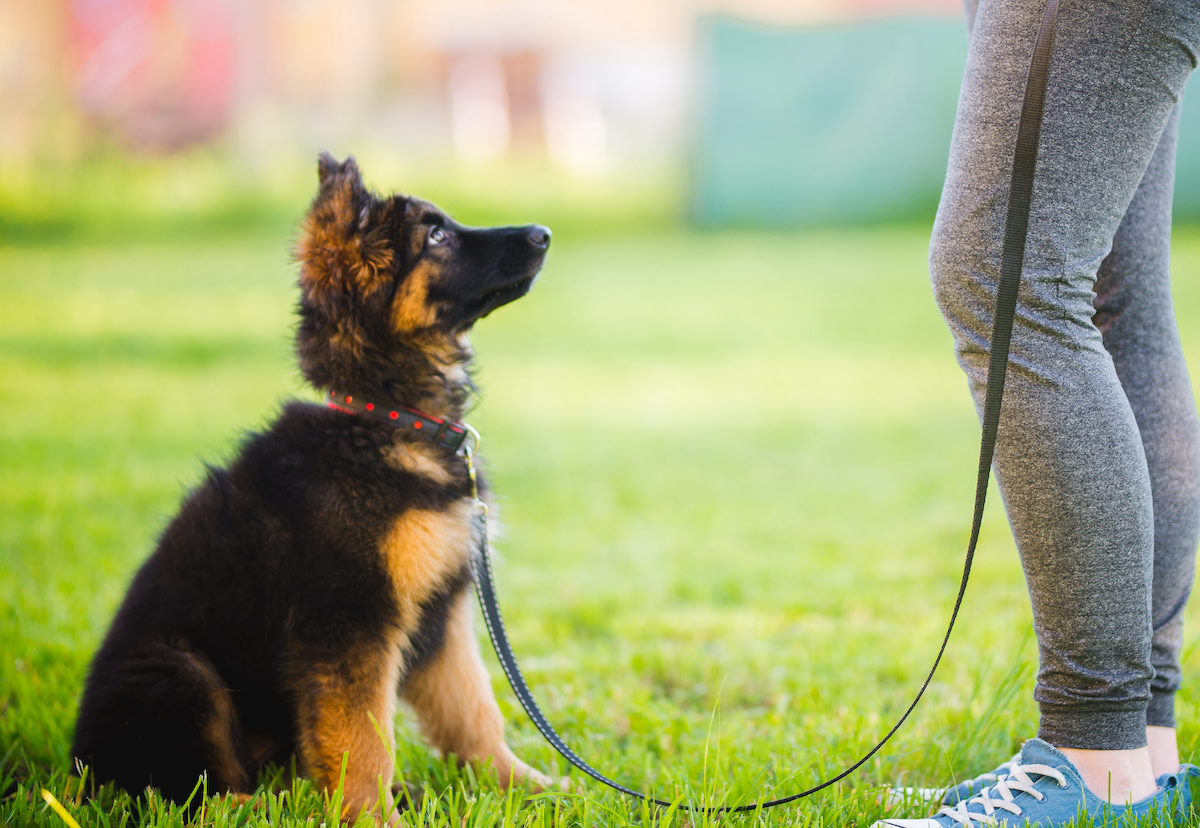How to Discipline a Puppy: When to Start Discipling Puppies
Written by MasterClass
Last updated: Jan 31, 2023 • 4 min read
Puppies need discipline to discourage misbehavior and build trust with their owner. Learn training tips to turn your rambunctious puppy into a good dog.
Learn From the Best
What Does It Mean to Discipline a Puppy?
To discipline a puppy means to teach a puppy or young dog desired behavior while also avoiding unwanted behaviors through a combination of commands and positive reinforcement. Pet parents know that while puppies are cute and energetic, they are also inquisitive and willful. Without dog training and discipline, puppy play easily turns into rough play, resulting in damage to property and even possible injury to dog owners. Aggressive behavior issues such as nipping, biting, or lunging while leashed also benefit from training sessions and discipline.
Discipline vs. Punishment for Puppies
Discipline and punishment are two different approaches to correcting puppy behavior problems. The differences are as follows:
- Discipline: According to many professional dog trainers, discipline refers to training methods that correct your puppy’s behavior problems without resorting to verbal or physical punishment. Puppy discipline uses a combination of redirection, basic commands that reprimand in a firm but calm tone of voice, supervision, and positive reinforcement.
- Positive reinforcement: When puppies exhibit good behavior or correct bad behavior, reward them with verbal praise, petting, treats, or playtime. Positive reinforcement of good behavior is the right way to create a bond of trust between you and your new puppy and encourages them to repeat the behavior in order to reap the rewards.
- Punishment: Discipline does not conflate with punishment, which refers to a forceful or frightening corrective response to behavioral issues. Behaviorists note that striking your puppy, scolding or shouting in an angry or loud tone of voice, or otherwise using negative behavior as part of puppy training isn’t teaching your dog to obey you but to fear you. These punishments do little to correct misbehavior.
When to Start Disciplining Puppies
Start disciplining puppies at a young age. Eight- to ten-week-old puppies understand and respond to basic commands. Young puppies can easily learn “leave it,” which is one of the most common puppy commands. Use “leave it” whenever you see your puppy misbehaving, such as nibbling on shoes or acting aggressively during socialization.
How to Discipline a Puppy Effectively
There are several training tips for effectively disciplining a puppy without punishment. You should:
- Meet their needs. A dog’s behavior is often due to its environment. A puppy needs a comfortable and safe place to sleep, dog food, regular exercise, socialization with people and other animals, and of course, affection. Puppies lacking in one or more of these factors are more willing to act out from sleep deprivation, hunger, or excess energy.
- Use crate training. Crates give puppies a safe place to sleep and relax while also reducing the chances of unwanted behavior. Make sure your puppy’s crate has comfortable bedding, plenty of treats, and a well-loved stuffed toy to increase its appeal. Never use the crate as punishment.
- Be consistent. Puppies crave consistency in their daily routine and in puppy training. Correct bad dog behavior immediately and firmly every time it happens with a firm voice, a loud noise like a hand clap, or through redirection, like offering them a chew toy when they exhibit biting behavior. Don’t forget to praise them for following your commands.
- Supervise. Always supervise puppies. Left to their own devices, puppies’ curiosity often leads to destructive behavior. Be on hand to correct bad behavior, praise positive behavior, and take care of urgent needs such as potty breaks. Always have puppy chew toys on hand to reduce chewing or biting.
How to Discipline a Puppy for Biting
You can discipline a puppy for biting by using one or more of the following training tips:
- Understand why puppies bite. Though biting you is annoying and even painful—puppy teeth can break human skin—a puppy bites as a way to interact with their surroundings. If an item catches a puppy’s eye, chances are that it will end up in the puppy’s mouth. Puppies also bite more often when they are teething or playing, but even play biting is painful. Biting is also a response to fear or anxiety.
- Stop the play. Respond immediately if a puppy bites your hand during play. The last thing you want to do is jerk your hand away—this encourages more play and may result in a game of tug-of-war using your hand like a rope toy. Say “ouch” or “no” in a firm and clear voice—this is similar to the yelp a puppy’s littermates use when play gets too rough—and gently remove your hand from its mouth.
- Redirect. Stop puppy biting by having plenty of chew toys on hand during play. Always praise your puppy when it plays with the chew toy.
Want to Learn More About Training the Goodest Boy or Girl?
Your dream of having a dog who understands words like “sit,” “stay,” “down,” and—crucially— “no” is just a MasterClass Annual Membership away. The only things you’ll need to train up a well-behaved pup are your laptop, a big bag of treats, and our exclusive instructional videos from superstar animal trainer Brandon McMillan.
